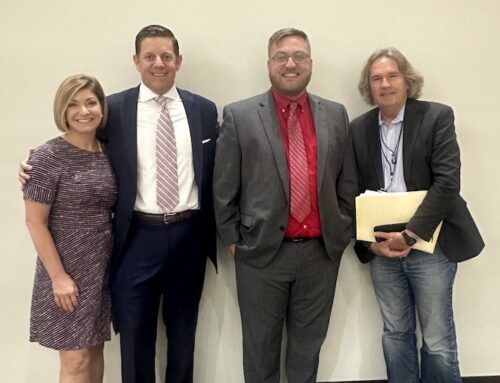Judge rules Fall Creek Falls privatization records should be released
In a win for government transparency, Davidson County Chancellor Bill Young ruled today that government records requested by the Nashville Scene regarding the privatization of Fall Creek Falls State Park should be released and are not covered by an exemption in the Tennessee Public Records Act.
Under the exemption, proposals for professional services and related records are open for public inspection only after the state has finished evaluating the proposals.
However, in this case, no proposals were received by the state’s May 1 deadline from businesses who wanted to operate the state park. The state argued that this meant any government records related to its request for privatization proposals would never have to be made public.
But Nashville Scene attorney John Williams argued that the evaluation period for the request for proposals (RFP) was complete and any related records should be made public, including any email communications between businesses and government staff regarding the RFP.
Williams said there is a clear public interest in the privatization of Fall Creek Falls State Park and such correspondence could offer insight into why no proposals were ultimately submitted.
The Nashville Scene knew relevant public records existed related to the failed RFP because the RFP was amended seven times, and at one point completely rewritten, Williams said. In one amendment, the state summarized questions it had received, but so far has not been specific about who asked the questions, nor expounded on what might have caused businesses to ultimately decline to submit proposals.
Young did not buy the state’s interpretation of the procurement exemption (see text of the exemption below), and further said that language in the Public Records Act instructs that the law must be construed broadly to provide the fullest possible access to government records by citizens.
“The court finds that given no proposals were received, there is nothing to evaluate here. And therefore, given that there is no possible evaluation to be made, any records related to these proposals became open May 1.”
Young also said that he was not convinced the exemption cited by the state was even applicable to the particular records requested by the Nashville Scene.
“The court reads this exception to only shield actual proposals received and evaluations and memorandums regarding such proposals. The provision does not shield documentation and records generated prior to the receipt of the proposal. Such an interpretation is contrary to the rules of statutory construction … and unduly broadens the scope of the statute.”
Young also had asked if the state had made any changes to its own published timeline regarding the RFP that stated the proposals and related records would be open for inspection on June 26, or if the state now planned to release records since the date had passed. The state’s attorney, Katherine Dix, answered there had been no change and the state’s position remains that the records are confidential.
In reading his findings, Young said that “even if the court were wrong in the reading of this statute, the court also finds that the evaluation period had run on this particular RFP. Indeed the state of Tennessee anticipated that that period would run on June 26. … There is nothing in the record to indicate that date has changed.”
The state also argued that the records should remain confidential because the state may at a later date issue another request for proposals to operate the park and releasing records would prematurely reveal the state’s “thought processes.”
But when questioned whether there was any evidence in the record that the state actually planned to issue a second proposal, Dix admitted she knew of no definitive decision.
Young did agree to review 14 sets of communication between Department of General Services staff and state attorneys that Deputy Attorney General Janet Kleinfelter asserted were shielded from public view because of attorney-client privilege.
Williams argued that not all communications between state attorneys and staff would necessarily fall within the attorney-client privilege exception, saying that such communication is shielded only when the client is asking for legal advice.
Young asked for a written order on his findings to be prepared for his review, and said he would include a ruling on attorney-client privilege in the order to be issued later.
Kleinfelter indicated that the state would appeal the trial court’s ruling. And while she described the documents requested as “innocuous”, she said the interpretation of the statute “goes to the integrity of the entire procurement process.”
Here is the public records exemption at issue:
T.C.A 10-7-504 (a) (7) Proposals received pursuant to personal service, professional service, and consultant service contract regulations, and related records, including evaluations and memoranda, shall be available for public inspection only after the completion of evaluation of same by the state. Sealed bids for the purchase of goods and services, and leases of real property, and individual purchase records, including evaluations and memoranda relating to same, shall be available for public inspection only after the completion of evaluation of same by the state.






